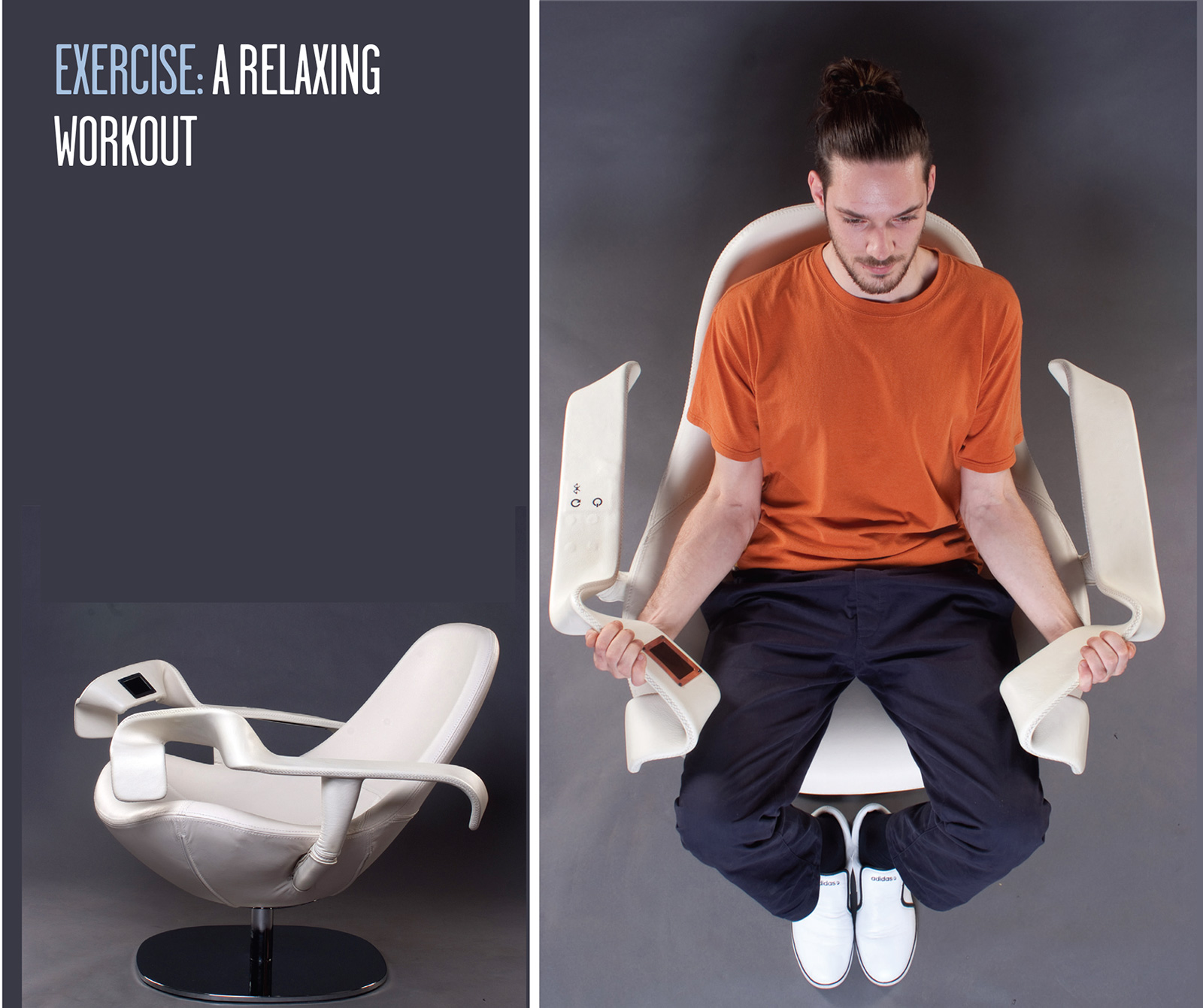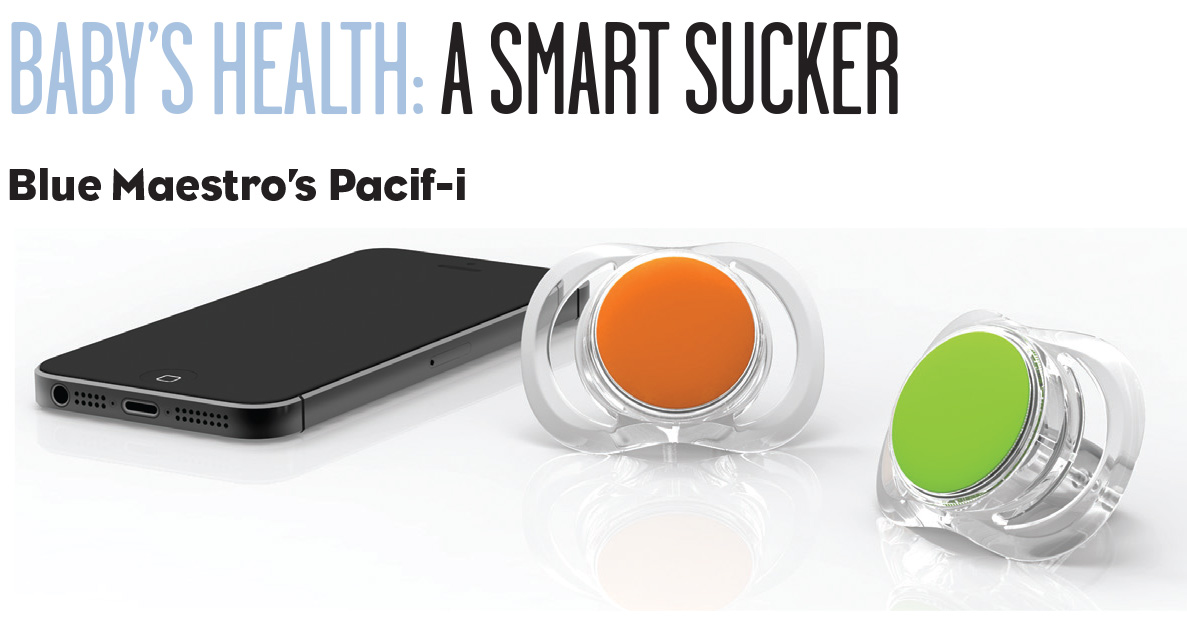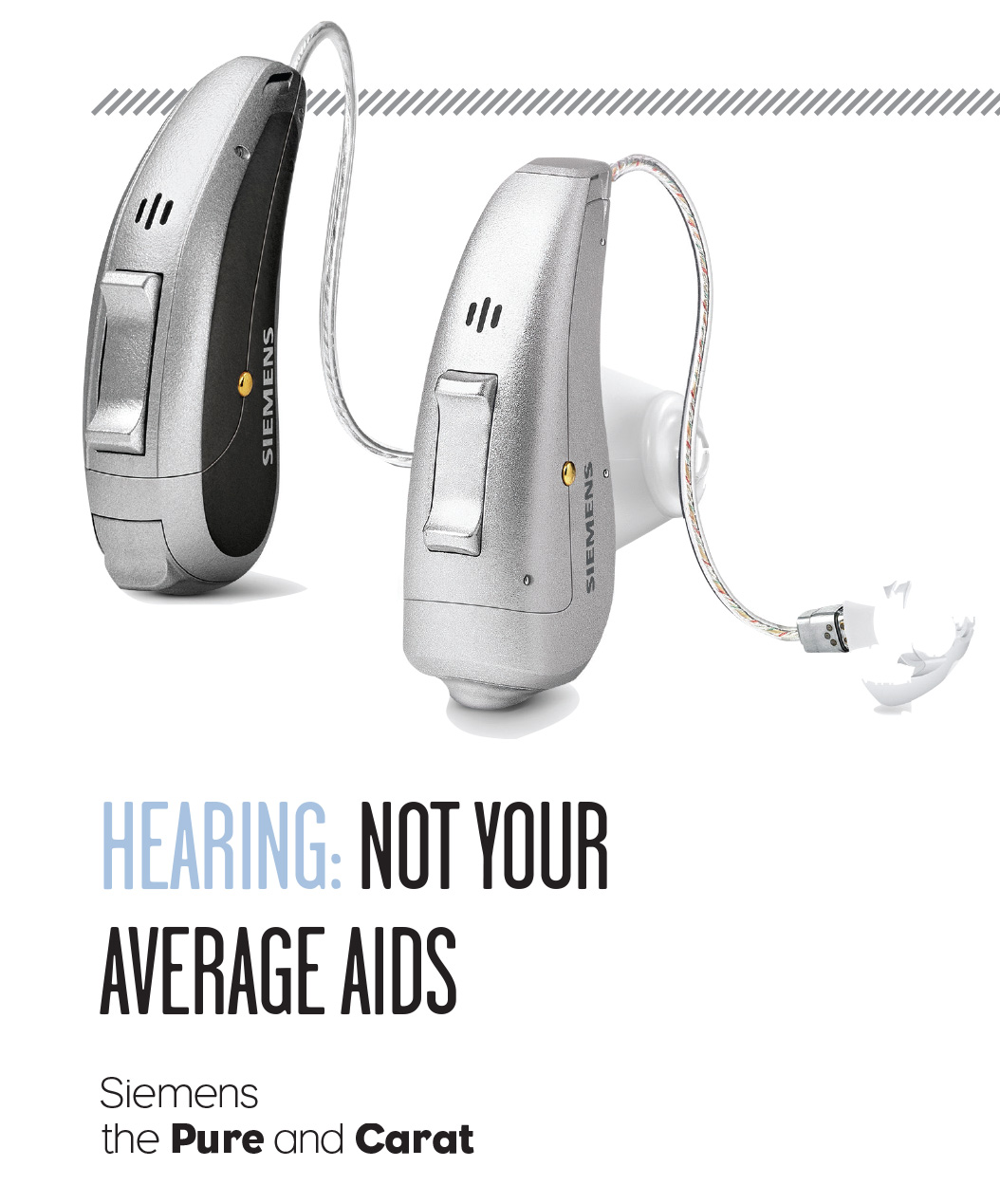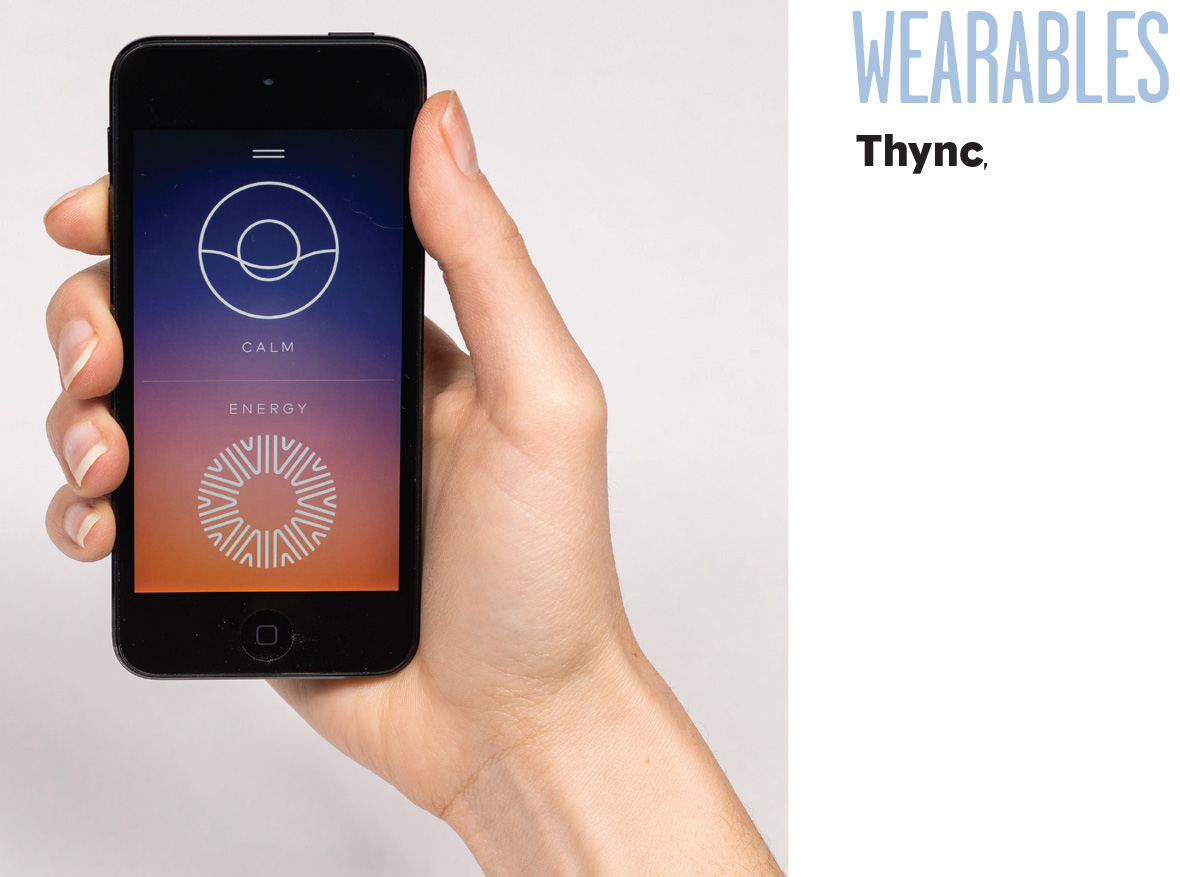Every year the presence of healthcare and fitness gadgets at CES (the International Consumer Electronics Show) grows larger and the products put on display increasingly resemble something we expect to see in a sci-fi film. From living room chairs that help you exercise to devices that clear your mind of stress, the future of healthcare is becoming more present by the second.
Exercise: A Relaxing Workout
TAO-Wellness is all about turning downtime into exercise time—their trademarked phrase—and they continued that tradition with the TAO Chair. The chair’s armrests are designed to be pushed and pulled so you can work out different muscle groups while watching TV or visiting with friends. As you push or pull, the armrests will not only resist but also track your force in every direction via embedded sensors. The arm display will then tell you how many calories you burned during that session—and from your total time spent in the chair.
Baby’s Health: A Smart Sucker
Blue Maestro’s Pacif-i ($40) is a Bluetooth-connected smart pacifier that monitors and tracks your baby’s temperature via an app on your smartphone or tablet. Parents can also use the app to keep track of when medication is administered and send updates to their doctors. An added bonus: The Pacif-i features a proximity sensor that will alert parents if their baby wanders off—and features a buzzer alarm that can be activated if your child (or significant other) misplaces it.
Hearing: Not Your Average Aids
Siemens unveiled a new line of smart hearing aids including the Pure and Carat, which, according to the company, can even outperform people with normal hearing in environments with heavy background noise. When these smart hearing aids are worn in both ears they use intelligent, two-way wireless communication to pinpoint the desired speech in crowded situations, such as a noisy restaurant. These devices can also be paired with Siemens’ new easyTek and easyTek app to control the direction and focus of the aids’ microphones to enhance the sound even more.
Adherence: The Connected Pillbox
Healthcare companies are always looking for new methods to improve adherence and this spring will welcome a new option. Tricella’s Liif ($75) is a pillbox that connects to a smartphone via Bluetooth or NFC and not only reminds users to take their medication, but also informs their caregiver when users do not. Liif also tracks progress and offers reports detailing medication adherence. And if you or a loved one doesn’t have a smartphone, you can purchase the Tricella Hub ($120) and connect the Liif to your computer via WiFi.
Wearables: A Better State of Mind
This year’s CES saw the rise of a new category of wearables—one focused on improving your state of mind. One example: Thync, which uses neurosignaling in the form of electrical pulses to shift and optimize a person’s mind to an energized, relaxed or focused state. Thync has different programs—called Vibes—for each state. For instance, Thync Calm Vibes help your brain relax. Users can select which Vibe they want from a smartphone app. In a recent study, 97% of participants said that just a 14-minute session with Thync resulted in significant stress reduction.










